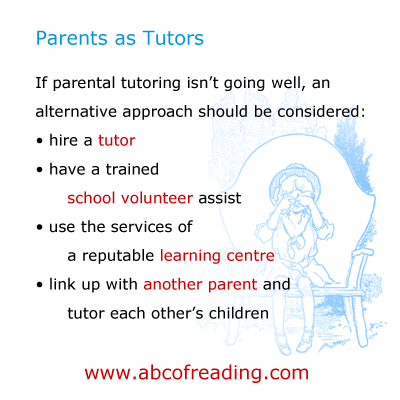To stimulate confidence in my work, I’m presenting testimonials that substantiate the Program’s results as well as information on my professional background. Before I go any further, I want to mention that not only was I special education teacher (retired) but more significantly, I am dyslexic myself. In other words, it was the insight that I acquired from my own struggles that has allowed me to develop this excitingly effective program.
Testimonials
– Though a severely dyslexic 12 year old student had been exposed to a variety of remedial approaches over the years, she could not read words such as log, bit and hut when we first met. However, within 15 minutes of her first session she was reading words of this nature independently.
Her resource teacher had sat in on the session and was so impressed that she bought the Program then and there and was using it within a couple of days. This teacher had the opportunity to use the Program for two years before she retired and she later mentioned that during that time not once did she encounter a child who did not benefit from it.
– Though a completely illiterate 49 year old was exposed to a variety of reading approaches over an eleven month period, he still could not read. However, the first time my Program was presented, he read his first words ever. Six months later he was the recipient of a national award – the Peter Gzowski Learner Achievement Award.
The following is an excerpt from a letter the student’s tutor sent me.
“The first tutoring session with your materials was an eye opener for me. Somehow my student suddenly seemed to get it. Digging out the vowel and sounding it enabled him to put together a three-letter word for the first time. The look on his face made the eleven months of Thursday evenings worth it – for him and for me. Thank you so much.
– A few years back I saw a 9 year old from California. She had been tutored with one of the highly popular program and though she was seen for three two hour sessions per week for the better part of the previous school year, her progress was limited. For instance, her reading level was only at the end of Grade One when we first met. I worked with her for just two one hour sessions and during this time her reading level, according to the assessment her Californian tutor carried out, had jumped from the end of Grade 1 to the beginning of Grade 3.
The following is an excerpt from a note her dad sent me. It confirms his daughter’s progress.
“I have watched my daughter go through various reading programs and never have a great deal of success. However, in the two brief sessions she had with Ms. Trower, I saw remarkable progress in her reading abilities – our daughter could read a passage that until then had been indecipherable to her.”
Information on my Professional Background
– The Eastern Townships School Board psychologist enthusiastically supports the Program as she is finding it is reaching students who have been resistant to the various remedial approaches – including the highly popular ones that they had previously been exposed to.
– In 2015, I introduced my work to a professor in the Faculty of Education at McGill University, and in return I received an invitation to present at their Distinguished Educator Seminar Series. However, due to financial cutbacks, 11 out of the 19 seminars were cancelled and this included mine.
– I recently presented a workshop at Quebec’s Annual Teachers’ Convention. Things went very well. For instance, once the chairs were taken, folks sat themselves on the floor. This level of attendance is telling because as the audience didn’t know me, it wasn’t my reputation that had attracted them but it was their ongoing search for an effective remedial program that did. Furthermore, the workshop’s content was well appreciated. This was expressed through the audience’s evaluations as they primarily consisted of 5/5 while the remaining ones were scored at 4/5.
– The following is an extract from a letter I received from the Dean’s of Students, Bishop’s University. It alludes to the fact that in 1992 I persuaded Bishop’s University’s Senate to officially recognized students with learning disabilities and as a result it has since been standard practice for these students to receive special accommodations.
This letter will acknowledge that Mrs. M. Trower has been a consultant to Bishop’s University on learning disabled students for a period of two years. This work involved advising members of the Counselling Service, the Dean of Students and the Committee of Associate Deans on proper policies and procedures for dealing with learning disabilities. Mrs. Trower has also provided on-going counselling to a number of individual Bishop’s students.
I must tell you that Mrs. Trower’s work has been outstanding. She has provided the University with a wealth of information. She has been very effective in sensitizing the University community to this neglected area and her professionalism is noteworthy.
Please feel free to contact this office if you require any further information.
– The following is an excerpt from a letter received from a member of the Learning Associates of Montreal – an organization which is highly respected. For instance, one of its former associates was a consultant on the Canadian production of Sesame Street.
Minna is a gifted individual who has an excellent understanding of learning disabilities from both the teacher’s viewpoint, and as she herself experienced learning difficulties, she sees it from the learner’s perspective as well.
Minna has already made valuable contributions to the field of learning disabilities and I expect her to continue to do so. I have no hesitation in recommending her.
For more information on the Program, visit www.abcofreading.com .


